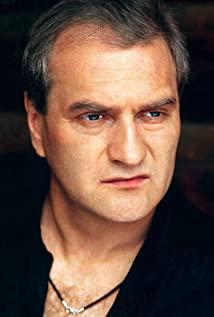Author: Fang Hanjun
In psychology, love is defined as the process of three needs and experiences of "sex, beauty and attachment". For marriage, it was upgraded to the three points of "love, understanding and mutual dependence". It's not that "sex" in marriage is not important, but that "sex" is firmly implied in these three points. This is the difference between "love" in the love stage and "love" in marriage. From this, it may be easier to understand the new Russian film "Exile Love" (2007), and it may be easier to analyze the fragile flower in this breeze.
This film, directed by Andrei Sagintsev, subverts our almost exhausted imagination and bad habits of watching movies from another story level. The male host hates the hustle and bustle of the city life, and with a beautiful wife and a pair of lovely children, he comes to a beautiful rural ancestral house for vacation. The family spends the whole day in tranquility in the pastoral scenery with abundant grass and beautiful water. The picturesque beauty is just a glimpse of the white bird. Rather than lingering in the fresh green and pure air, it is better to say that another "hustle and bustle" started quietly in their hearts.
They had little communication, no concern, just eerily flat. Silence is often the prelude to a storm. From beginning to end, the film is fixed in a very calm and cool tone. Each picture seems to be carefully crafted, yet so casual and natural. Russian films have always had the habit of constructing delicate paintings. In the elegant picture, when the wife calmly said to her husband: I am pregnant. Husband was amazed. Then the wife still said quietly: Not your child! At this time, the husband was only stunned, even a little panicked, but not hysterical. He said to her: In front of the children, let's be the same as before.
So life is as simple and safe as galloping on the grassland in front of the distant mountains. But the husband couldn't bear to "slap" his wife. He wanted her to be "killed". The wife reluctantly agreed. The husband confided the irreparable incident to his brother. The younger brother invited the best doctor to the house for him to help his sister-in-law "destroy" her. At the same time, her last "hope" and vigor are also destroyed. In desperation, his wife committed suicide by taking medicine. It's really "misfortunes don't come singly", the younger brother died suddenly of a heart attack while blaming himself.
On a rainy day, he found the man he believed had caused his wife's pregnancy. This man, calmly confided his wife's story to him. It turned out that during the husband's business trip, the weak wife had received the care and spiritual comfort of this man. Weakness and exhaustion stemmed from her love for her husband. Because over the years, her husband no longer loves her as much as he did before, is no longer willing to communicate with her, and is no longer intimate with her. She just felt disappointed and left out. A marriage like ashes has to fulfill all the obligations of a wife. Her husband ignored her. Just be a babysitter or a virtual freelance.
From this, she weaves a ruthless lie: I am not carrying your child. In fact, she did not steal the forbidden fruit. It's just that she felt that love died early in marriage. Even if she is pregnant with her husband's child, it will be the same. Men always take everything for granted. People are emotional animals, and their spiritual needs should never be underestimated. This is precisely the blind spot that men are most likely to ignore. The 150-minute film is filled with a touch of sadness and sadness from start to finish, but it's surprisingly quiet. The lighter it is, the easier it is for people to chew slowly.
The status of Russian films in the international film industry has been declining year by year, and the number of award-winning films has become less and less. But the long-standing cultural tradition always makes us look forward to it. Soviet films such as "Song of the Soldier", "The Wild Goose Flying to the South", "One Man's Encounter", "The Station for Two" and the documentary "The Palm", etc., of course, including the films of Tarkovsky and others, are all common. See Chang Xin's masterpiece. In a certain historical period, it is not easy to make such a film. In the ten years since entering the new Russian era, films such as "The Thief", "Captain of the Caucasus", "Burning Sun", etc., are all good movies.
Also shot in 2007, a Mexican film "Silent Light", the quiet style is very close to "Exile Love". Director Carlos Regadas has directed "Heaven and Earth" and "War in Paradise," which you think is only half the film. And this "Silent Light", obviously, the director came prepared. Although it is just an extramarital affair, the style is very unusual.
The film has always used a large number of lenses to observe the changes in the natural landscape before and after dawn, reflecting the waves of life and the vastness of the earth. In the simplicity and tranquility of the scenery, there are poetic emotions scoured by flowing water. After some "Wushan Clouds and Rains", it is always necessary to return to a calm and boring reality. Life is always intertwined, and always cares about one and the other. You can never have both fish and bear's paw. Good things cannot be occupied by one person. Bad things can't be all about one person.
Many paradoxes and conflicts in life, both inside and outside the play, cannot be resolved or recovered. No matter how beautiful the bridged porcelain is, there will eventually be cracks. But that doesn't prevent day-to-day life. Life is not dead or unforgivable. Life always requires "endure and endure, endure and endure". Otherwise, only after the light of silence will love easily exiled. Exiled, there are wandering hearts and corpses.
Think of the love experienced by those wise heads, and nothing more. These people who are addicted to love are full of blood and nerves. Relatively speaking, women are more perfect, kinder and more rational than men. Even if you look at a lover like Muse, in the love letter to George Sand, the paper is full of numbness, it really burns. It's not that he said so many hypocritical words like "love, baby", but that his "love" is too selfish, domineering and uncertain. It stands to reason that he is eight years younger than George Sand, so he should bring some light to the suffering George Sand, but he didn't. All he brought her was endless blame and absurd jealousy.
George Sand is a woman with a big heart. Although her marriage is unhappy and her relationship with the great writer Mei Limei has long since become strangers, she still lives tenaciously. According to the current situation, her mentality is very sunny. In fact, from the beginning, she kept a bit of calm towards Musset's crazy courtship, but she still couldn't resist Musset's "bombing", and she willingly accepted his love. She took care of the sick him like a mother. In fact, he also referred to her as "Dear Mother" in the letter. It is often said that "a man will never grow up, but will always be like a child", which has found a vivid evidence. The problem is that when it was George Sand's turn to fall ill, instead of caring for her, Musset blamed her for her illness. A lot of grievances are simply unbelievable.
In a letter from George Sand to Musset on September 7, 1834, he wrote sadly: "I am writing to you in the woods, holding a picture book. I came here for a walk, feeling lonely, sad, Heartbroken; here I am reading your letter from Baden. Alas, how unfortunate! What is this all about? This feeling of ours should be changed and by its very nature should not be given to any more People bring unpleasantness. Why do you keep forgetting?" At the end of October 1834, she began a letter to Musset: "When the dream of happiness is in hand, it must be followed by Blame it, and you will turn into my sins what you have accepted in the past."
A person who only wants to indulge in happiness and is unwilling to share the pain is destined to be unable to obtain perfect love. Of course they broke up. But after the breakup, Musset was still neurotic in scolding and even insulting. George Sando is very big. She later had a wonderful time with Chopin. In love, women are indeed much more thoughtful than men.
Such as the love between Balzac and Madame Henska. One is in Paris and the other is far away in Ukraine, and they are "grooming their husbands and teaching their children". I really admire Ba Lao's spirit of "frustration and struggle, repeated defeats and battles". It was his perseverance during the seventeen years that finally let the lady leave her family and go to Paris to marry Ba Lao. Although Ba Lao passed away half a year after the marriage, he did lament the wonders of love. You think, if Ba Lao doesn't leave so early, there is no guarantee that his marriage with Mrs. Hanska will last for a long time. Perhaps many of the things he pursues have been given ideals and beautifications. Once they come into reality, they will be shattered. Fortunately, he left early and left behind this story that spanned time and space, the so-called "getting married".
The imagination and enthusiasm of men to pursue love are often "people are crazy", which is unprecedentedly high and full, and after realizing it, they always like to "find the gap from reality", which is a bit like our party's group discussion. The result is that the high-pitched subsides, the enthusiasm is not obvious, and there is the meaning of "getting drunk" and dying, or "turning the gun" to hunt for the next target. This kind of "crazy" man is, in modern terms, "men are not bad, women are not loved".
Coincidentally, Lawrence also pursued Mrs. Frieda Wakeley, who lived in Munich, and of course, they "get married". It seems that these great writers "follow one another", and the deeper reason is because of the embarrassment of life. It's not that they don't have love, on the contrary, you think they are serious about love, it's just that they are more "hysterical" about love. It's just that the object of their love needs characters like "Mrs." to feed their "love" and realize their creative ideals.
Shohorov, the author of "The Quiet River Don", said: Those who are engaged in creation, it is best to find a wealthy daughter to marry and marry. At least you won't have to worry about life being unfulfilled. So, you will understand Balao and Lawrence to some extent. The marriage of American dancer Duncan and Russian poet Yesenin, despite their great age difference, brought them some peace and joy in life, which is both poetic and realistic. But in the end it was still fruitless. Gauguin exiled himself in order to live, went to the Pacific island of Tahiti, married an indigenous girl, and completed a leap in his life and achieved his brilliant paintings. And Lawrence's marriage with the German lady eventually allowed Lawrence to write many brilliant poems, travel notes and other excellent works.
"For a lifetime, grass grows for a spring". Years have collapsed, life has drifted away, and only these great works are left. Instead of casually blaming them for their personality flaws, we have only deep sympathy. We will admire these women who are as broad and selfless as the sea. In a way, they are the creators of these geniuses.
As Laurence, overflowing with happiness, said in a letter to Frida Wakeley dated May 17, 1912: "You remind me of Maubersant's short stories. An Italian worker, young man , took the train to France, had no money, and hadn't eaten for a long time. There was a woman whose breasts were full of milk - she was going to France to be a wet nurse. Her breasts were full of milk and were painful - the young man Starving and feeble. They saved each other from their misery, and each got a benefit."
2008, 7, 17
View more about The Banishment reviews











